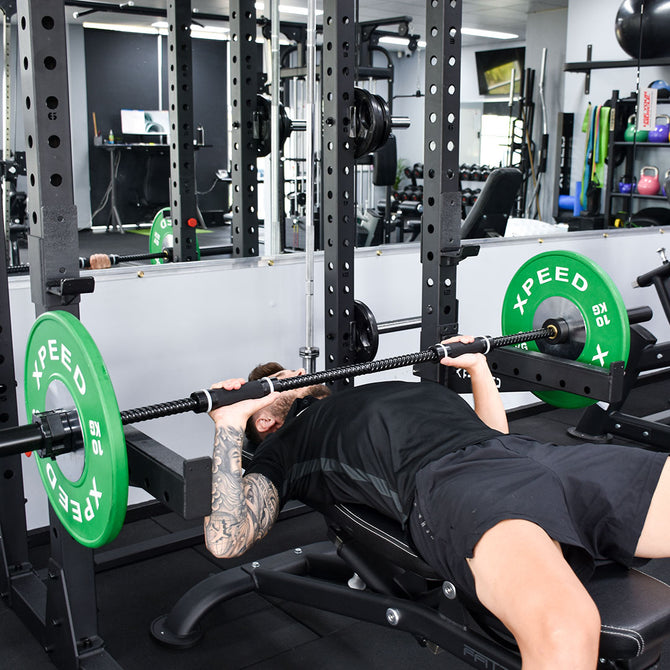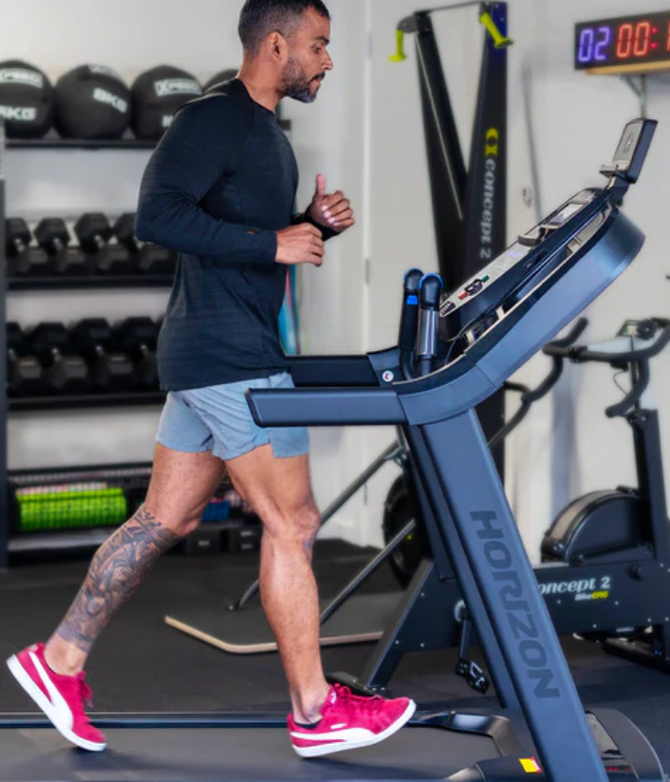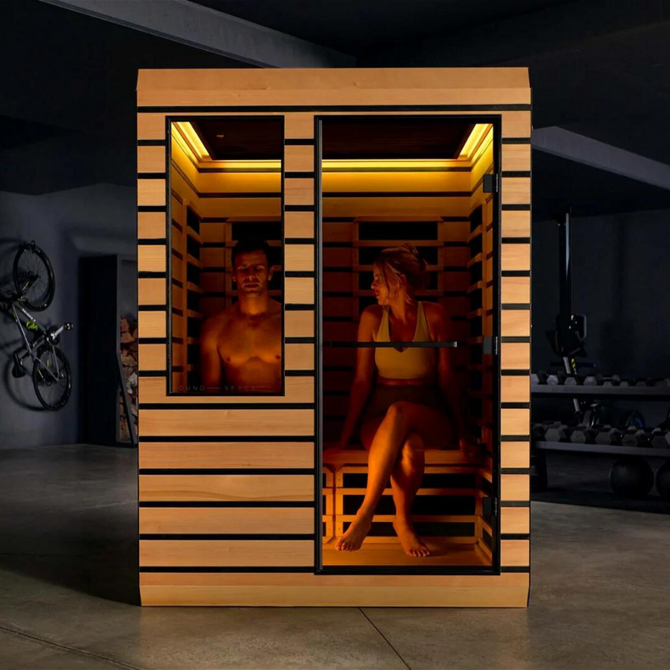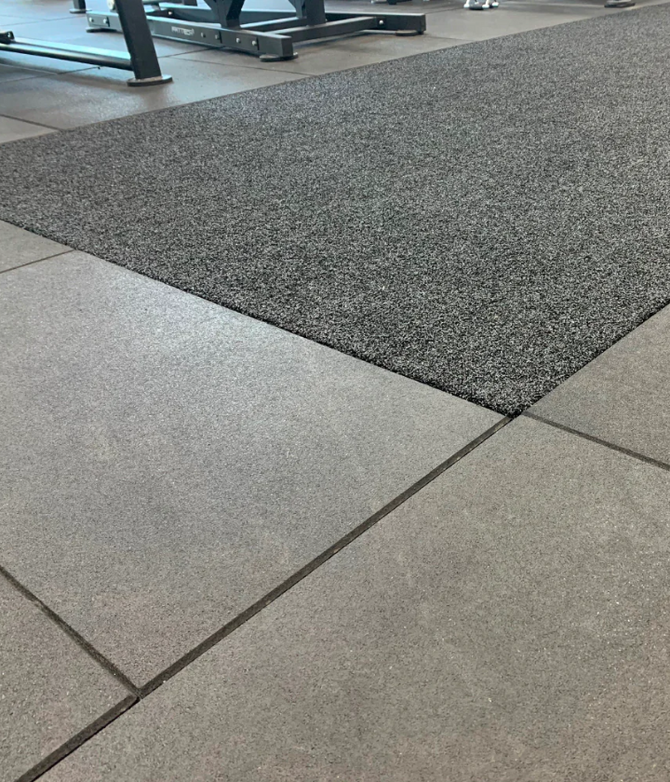At this time of year many winter sports teams are entering pre-season training for the 2022 season. As proud fitness equipment partners for Adelaide United and with the Izuzu Ute A League Men's season almost upon us, we thought we’d ask Adelaide United’s Strength & Conditioning Coach, Django Gentilcore a few questions about ‘pre-season’ training. Afterall, the A League Men's competition has one of the longest pre-seasons in the world, so who better to ask than Django!
1). Django, firstly what is the difference between 'off season' and 'pre-season'?
The difference between the 'off season' and the 'pre season' is that the off-season refers to the time between the end of a season and the beginning of a pre-season. This is generally a time period of 4-6 weeks, where the players are able to rest, recover and switch off from the stresses of a season that has just ended, so it is usually a time where most will travel, go away on holiday, get married, etc. During this time all players will be given an off-season training program, however there cannot be any monitoring of players from the club's end in this period.
However, the pre-season period refers to the time from when the players are set to arrive back at the club to commence training again - after their off season break - until the week of round 1 of the upcoming season. The goal of the pre-season is to prepare the players physical capabilities as best as possible, so that they are able to perform at an exceptionally high level and meet the physical demands of a football season, as well as mitigating their risk of injury.
In the Izuzu Ute A League Men's the pre-season period is exceptionally long, usually spanning 12-14 weeks, however the pre-season we have just completed for this season ran for 16 weeks in total. To put this in context, most professional football leagues in Europe will have a pre-season of 4-6 weeks.
2). When it comes to pre-season training what is a common mistake that athletes tend to make?
A common mistake I would tend to see athletes making is wanting to replicate, or create programs out of, training exercises and drills that they have found on social media platforms without knowing exactly why they are doing it, and often only doing so because the exercise(s) looks cool or fancy.
Another common mistake that I would hear or see, would be the way in which the full training week(s) has been put together, ie. what type of training are you doing on which days and why?

It basically comes back to the notion of training smarter, and not necessarily harder - although training smarter does not mean training easier all the time either. It is assumed/known that, generally speaking, pre-season will not be an easy period of training, however you cannot train hard every single day just because it is pre-season. The scheduling, or periodisation, of the training week(s), is a crucial piece of the puzzle as it will have a significant impact on injury risk mitigation, and performance increases from the training being undertaken. Considerations such as; where do you include your sprint/speed training, small sided games, top up running, gym sessions, recovery sessions, days off, etc etc. are crucial to the outcomes of your program.
I think in professional sport this is less of a problem as there are performance & sport science staff in place, as well as the coaching staff, that have a thorough understanding of these concepts, and will plan the training schedule for the squad. However if you are an amateur or semi-professional athlete that is looking to perform better, this would be a great area to do some research in to improve your training outcomes and performance.
3). Is it important to measure or track pre-season training? If so, what are some simple ways to do that?
I believe it is important to measure and track your pre-season training, because if you cannot objectively show any improvements, then you are only guessing the result and effects of your training program.
There are endless amounts of data that can be monitored these days, and we are lucky enough in the professional environment that we are in to have GPS and heart rate data across the squad for each session, which gives us a large amount of information and insight.
However there are many ways in which you can track progress of your training program without the use of any technology, and whilst they might not be considered the gold standard forms of monitoring, they can certainly give you a better understanding than if you didn't use them at all.
Methods of 'load monitoring' such as collecting each players RPE (rating of perceived exertion out of 10) after each session, and multiplying it by the training sessions duration in minutes (ie. RPE of 7 x 50min = 350), will give you an arbitrary value that you can total for each player weekly, and compare across the squad from session to session, week to week. This will allow you to ensure you are not making significant changes (ie. 20% or more) in training loads from week to week.
Simple methods of 'fitness testing' may include tests of, how far can you run in a certain amount of minutes? Ie. distance ran in 4min, or in 6min, 12min, etc. Or, how many seconds/minutes does it take you to cover a certain distance, ie. 2km time trial. From simple tests such as these, you can use the results to calculate values such as your MAS (maximal aerobic speed), and develop simple and effective running programs based from it - which again, requires no equipment.
4). Is 'more' better when it comes to pre-season work?
I don't think 'more' is necessarily better when it comes to pre-season work, as it ties into the same concept mentioned earlier of training smarter, and not just harder. It is very possible that you can train huge amounts, and have very poor outcomes in regards to changes in performance.

There are many reasons as to why, but some that are important to note are; if there is a lot of training being performed that does not look anything like the sport - ie. only jogging long distances for fitness, when you're training for the sport of football/soccer, where you need to sprint, change direction, kick, tackle, etc. it is possible that you can train (run) a lot, and get very poor outcomes. Another would be that if you just train 'more', there is an increased chance that your recovery between sessions will be compromised, and therefore your risk of injury will increase, and a player becomes injured he/she will not be able to train at a sufficient level to improve fitness for a period of time, and therefore will become less fit and less prepared for the upcoming season, and will be more likely to suffer another injury during the season.
This does not mean that you cannot train hard, but it is extremely important that the training program is progressively increased in both volume/amount, and intensity, over the course of the pre-season. Start writing your program with the end goal in mind (ie. complete a football game, with the ability to perform explosive footballing actions often throughout the full 90min game), and start week 1 of pre-season at 50% of what that looks like to you, and build up slowly each week (10-15% max per week). This will allow you to reach the physical level you desire, but in a way that allows the athlete to make the gradual adaptations needed to cope with the demands of a football season, whilst maintaining performance and better mitigating injury risk.
Summary:
Big thanks to Django for taking the time ahead of this weekends game and providing some insights into pre-season training. Hopefully if you're in the process of starting pre-season you've been able to take away some key points around specificity, load and duration of sessions. It’s been great watching Adelaide United get ready for the season ahead and we cannot wait to watch them take on Perth Glory this weekend. For all things Adelaide United be sure to visit their website and we hope to see you at Coopers Stadium at some stage this season.
 Answers by Adelaide United S&C Coach, Django Gentilcore.
Answers by Adelaide United S&C Coach, Django Gentilcore.
 Written by Fitness Warehouse Personal Trainer, Simon Mitchell.
Written by Fitness Warehouse Personal Trainer, Simon Mitchell. Simon has a Bachelor of Human Movement, is a certified FMS trainer and has worked in the fitness industry since 2003. Simon started his fitness journey as a trainer with iNform Health and Fitness before moving into commercial radio and then back into fitness with Bodyism in the United Kingdom and Australia. A career highlight was being one of Daisy Ridley's personal trainers on Star Wars IX - The Rise Of Skywalker.







